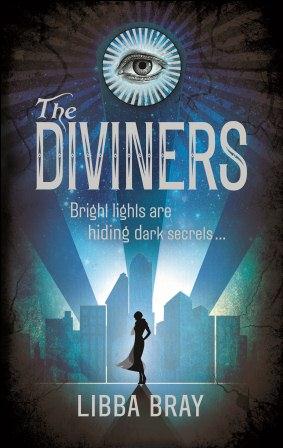Libba Bray Channels the Lost Generation in Her New Paranormal Series, The Diviners
 |
| The Diviners (The Diviners #1) by Libba Bray |
So when I heard over a year ago that she was writing a new series, inspired by 1920s icons like Zelda Fitzgerald and Dorothy Parker, I practically wept with happiness. If anyone could capture the zeitgeist of the era and employ her brand of funny and poignant, it was Libba.
Why did it take me until page 180 to really begin to like this book then?
There were a couple of reasons. First, this book is dark and I mean DARK. No one is a happy person in this book and Libba Bray does the best job of capturing the frenetic attitude and sense of doom which characterized the Lost Generation since F. Scott Fitzgerald.
But these brittle, jaded, impossibly sad people don't make it easy to connect with them. Evie, the main character, jangles the nerves with her flippant flapper slang and odor of desperation as she tries to drink herself into oblivion, succumbing to the need for attention with her "gift" of reading objects which reveal their owner's secrets to her. It got her kicked out of her hometown in Ohio, and she's much more content to be spending her exile in Manhattan with a preoccupied uncle who runs an unsuccessful museum of the occult.
 |
| The U.K. version of the cover |
Because all of these people, and many of the equally as well-drawn secondary characters, are "diviners" or people with supernatural abilities who will be crucial in the upcoming conflict, although we really don't know what form that storm will take, even after almost 600 pages. The last 400 pages of the book contain a real rip-snorter of a mystery (now that the foundation for the time period and character basics are laid) and, since I imagine that this series is at least a trilogy, that first third of the book is probably a reasonable dedication of resources.
 |
| Spanish language version |
Theta's abuse is clearly detailed and as the attraction between her and Memphis ramps up, it's clear in this era that this budding romance could end in tremendous racial violence. The distrust of government - as seen through the eyes of Sam, whose mother is part of the mysterious Project Buffalo (to be explained in more detail in a future book) and Jericho who was literally made a human experiment, as well as the sinister blind man, Bill, who seems to have had repeated exposure to an early version of "Men in Black" - actually fits the tone of the Lost Generation post-WWI era perfectly.
Librarians: this book is going to be a hot property when the new The Great Gatsby film comes out in 2013 and everything twenties becomes new again. Libba Bray's research is meticulous and exhaustive and it shows - every detail is so pitch-perfect for this era that I just sat there, utterly dazzled reading all these amazing references. The afterword in the book says that the companion website to the series would have a bibliography, but I couldn't find one at this point on there.
This book possesses Libba Bray's usual writing skill, particularly in the historical details and slow reveal of character depths, and I'm going to definitely read the next book in the series, particularly after seeing how the book progressed in pacing. The story arc laid is sufficiently fascinating that I think this series has a lot of potential to live up to her reputation. I'm glad I stuck it out through those first 200 pages!
Book trailer from Little, Brown & Co


































